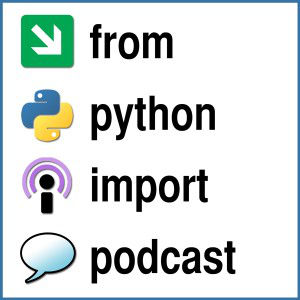
From Python Import Podcast
Mike Pirnat, David Noyes, Benjamin W. Smith, David Stanek, Mike Crute, Chris Miller
From Python Import Podcast is a podcast about Python
- 1 hour 12 minutesEpisode 017: The One About Python 3
At long last, we finally get down to some Real Talk about Python 3. In this episode, Mike and Dave are joined by guests Nick Coghlan and Alex Gaynor; our discussion gets into the history of Python 3's development, why it's compelling, whether it's a failure, and more. We also chat for a bit about Alex's new Cryptography library and the downfall of "abstinence-only" crypto education.
All this plus some news and the return of the return of Python trivia! Read on for some additional thoughts as well as a plethora of links for this episode.
First of all, we'd like to apologize for the delay. We had almost managed to settle into an every-other-month cadence when we were stricken with scheduling conflicts and the unexpected death of our editing platform. (And oh, how the sadhorns did play!) Work and pre-PyCon complications followed.
Secondly, a heads up--though we're trying to improve the audio quality (Dave has a microphone now!), Google Hangout seems to have betrayed us, introducing mystery pops and clicks that have thus far resisted our attempts to scrub them out in post. For some reason they seem to only affect one segment of the recording, so please bear with it for a couple minutes--the main interview portion of the episode is click-free. We're very sorry, and all we can do about it at this point is to promise that we'll keep working on it.
While we were fighting through all of the above, Python 3.4 was released, and it's really exciting because it has seriously cool things that we somehow failed to discuss at all during our recording session a couple weeks prior (though we may have mentioned some highlights last time).
Behold, a parade of links, for your clicking enjoyment!
- Django News Podcast
- PyOhio
- @pycoders
- @getpy
- Import This
- Python 3 Q&A by Nick Coghlan
- About Python 3 by Alex Gaynor
- caniusepython3
- Cryptography 101
- Cryptography Right Answers
- If You're Typing the Letters A-E-S Into Your Code, You're Doing It Wrong
- Moxie Marlinspike
- Practical Cryptography
- NIST Computer Security Division: crypto stuff
- The Colt Python
- The Python roller coaster--you can even take a virtual ride!
- The original Cheese Shop
- Albuquerque
Our hosting is generously provided by Rackspace. (Thanks!)
31 March 2014, 3:59 pm - Are You There, Internet?
Are you there, Internet? It's me, @__fpip__.
How are you? Doing okay? Made it through the holidays all right? Surviving the onslaught of polar vortices? Ready to be done with winter (or whatever season it is for you right now)? Are you excited for PyCon yet?
Yeah, us too.
We just wanted to drop you a quick note to let you know we haven't forgotten about you. We had some scheduling issues that messed up our emerging every-other-month cadence, and the machine that we use for editing the show decided to go to the big computer store in the sky.
Though we are delayed, we are undaunted; in fact, we just recorded a new episode a couple days ago that we hope to release in the next week or so (once our hardware issues are resolved).
We've heard your feedback as well and have been taking steps to improve the quality of our audio. We won't promise perfection, but we will pledge to iteratively improve. (And honestly, even though the Hangout recordings aren't the greatest, we think they're a huge improvement over some of the shows from a couple years ago in echoey conference rooms or bar basements. YMMV, of course.)
Can you do us a favor? One thing that happened last year when we had hosting problems was that we fell out of the iTunes store and had to set everything up all over again, which means we lost all of our ratings and reviews, as well as our subscription base. So we'd really love it if you could pop on over to iTunes and give us some ratings and reviews (and heck, why not subscribe while you're there?).
Thanks; you're super.
Have you got a particular topic you're interested in hearing about? Have something else we should know about? Drop us a line via Twitter or on our site's contact form and let us know! Or say hi to Mike at PyCon and we can hang out.
So... That should cover everything for now. We'll talk again soon. Until then, take care. Be excellent to each other, and Python on.
XOXO,
From Python Import Podcast
7 March 2014, 3:00 am - 1 hour 47 minutesEpisode 016: Katie Cunningham and the Podcast of Doom
In this episode, we're pleased to catch up with the one, the only, the real Katie Cunningham to catch up on some great stuff that she's been up to. We chat about the Young Coders tutorial (which you can totally contribute to or help scale), her Python article for Hour of Code, being good to students who run Windows, her brand-new book Teach Yourself Python in 24 Hours, and the Python 2–Python 3 divide. We also check in on the state of accessibility (which we last talked about way back in episode 10) and discover that there's a book for that too.
All this plus cookies, news, the return of Python trivia, and lots of things to link to!
We hear you like links, so please accept these as a token of our appreciation:
- Django 1.6.1 is out, with new hotness
- The Django blog is starting up Django Update posts again
- Python 3.4 has a beta with lots of cool new toys
- PyCon 2014 is coming in April! It's in Canada, so previously-privileged American travelers need to get passports!
- FPIP hosts Mike Pirnat and David Stanek will be teaching a web app security tutorial at PyCon 2014
- Python on Rails is a fun-looking way to travel to PyCon
- PyTennessee is coming in February
- DjangoCon EU is coming in May—on a freaking private island
- Put-In-Bay is an island village on Lake Erie; there is a very tall monument there
- Pycoder's Weekly is a great way to stay informed
- Katie Cunningham
- Young Coders Tutorial at PyCon 2013
- Young Coders Tutorial materials
- So You Want to Run a Young Coders Class
- Hour of Code
- The Five Minute Python Programming Primer
- The OS Divide
- Teach Yourself Python in 24 Hours
- The Accessibility Handbook
- Access Ability is a great place to learn about accessibility and usability
- Buckeyes are delicious if you don't have peanut allergies
- Potato candy is apparently also a thing
- William Zabka
- Vermonty Python
- Bicycle Repair Man (the sketch)
- Bicycle Repair Man (the tool)
Our hosting is generously provided by Rackspace. (Thanks!)
We hope that everyone out there has a safe and happy new year. Cheers!
24 December 2013, 7:00 pm - 1 hour 50 minutesEpisode 015: An Evening with Jesse Noller
By popular demand, From Python Import Podcast returns from the dead with a brand-new, supersized episode of epicness featuring an in-depth conversation with Jesee Noller, PSF board member, core developer, chair of PyCon 2012 and 2013, and all-around hoopy frood. Over the course of nearly two hours, we get an inside look at the Python Software Foundation, being a core developer, bringing a code of conduct to the Python community, community outreach and diversity, the joys and anguish of running a major conference, how to get involved in Python or PyCon, the work he's doing with Rackspace to inspire developers to build cool things, some Python trivia, and various strategies for discovering and curating collections of animated GIFs.
We'd not only like to thank Jesse for his time and candor, but we'd also like to thank each and every one of you for listening, for subscribing, for tweeting, for saying hello at conferences, for encouraging us to create new episodes again. Every little bit, every interaction--no matter how trivial it might seem--matters. You made this episode happen, and hopefully many more to come. Thank you.
Links! Links! And more links!
- PEP 1: the PEP about PEPs
- The multiprocessing module
- Python Mentors
- This Is Pycon
- Devops Reactions
- DNS Reactions
- Security Reactions
- Replygif.net
- Reddit: Reply GIFs
- Reddit: Reaction GIFs
- How to pronounce GIF
- Except that you're wrong
This episode contains Creative Commons licensed samples:
- ExplosionBombBlastAmbientA.wav by zimbot
- Lazer Zap.wav by Hoscalegeek
- Balloon Bass 12 by antistatikk
- bass-drum-clean-bent.wav by burnttoys
Full disclosure: our hosting is generously provided by Rackspace as part of their community outreach efforts.
31 October 2013, 5:00 am - A Rackspace Odyssey
This is going to be a lot longer than the things we usually post; buckle up.
One of our obstacles in recording and releasing new episodes has been some hosting issues that resulted from a server relocation that never quite put everything back in place correctly, and the people who could fix them were those of us who had the least amount of time to do so. I'd been thinking for some time about moving the site to a hosting solution that wouldn't result in those kinds of bottlenecks any more, so when Rackspace community advocate Jesse Noller started announcing free accounts for open source and community projects this summer, I jumped at the chance to shake things up.
I'm very pleased to announce that we've now fully migrated over to the new setup, and so far things are pretty darn good.
Full disclosure time--in exchange for getting the awesome hookup, we've been asked to:
- Link to Rackspace on the site (you'll see some bling in the sidebar and footer now)
- Mention Rackspace in episodes (you'll hear a PBS-style "made possible by" blurb in all future shows)
- Write a blog post about our experience (spoiler alert--you're already reading it!)
As I got our new setup going, I took extensive, stream-of-consciousness notes so that I could capture everything that I was thinking and feeling. I'm going to spare you from them and instead attempt to boil it all down into what I found to be the positive and negative experiences of getting everything working.
Account Creation & Initial Experience
Creating an account was pretty straightforward. The only thing I struggled with was coming up with a username that fit the requirement of being more than six characters (I had intended to use "fpip", our short abbreviation for "From Python Import Podcast"). Rackspace sent some really good follow-up emails as the account was created that helped me want to start doing things right away. The welcome videos were a nice high point as well; more companies--in any market--should provide this kind of high-level tour of their products.
However, the quick start guide linked to from one of the welcome emails was a disappointment--the knowledge center article it brought me to was pretty minimal, mostly containing links to things that didn't feel very quick startish to me: info about support levels, about monitoring service, about patching, and a video about creating a server with a managed service level. That's all either really dry, not what I'm looking for, or not applicable to our unmanaged account. For me, a quick start guide should be a "here's how you Rackspace for dummies" sort of thing.
Creating a Server
So, instead of reading the quick start that wasn't, I just jumped in and made a server. The control panel web interface makes this super-easy, offering a ton of different starting images and memory/storage combinations. This interface also lets you choose a region for your image to live in (basically, which data center it will be hosted in). Since I'm in the US, the choice of the DC area, Dallas, or Chicago didn't make a lot of difference to me (Sydney might be important if you're outside the US), but the most important advice is that you aren't going to get charged for data for chatter between boxes that are inside the same region, but will be charged for data that crosses from one region to another, so you want to keep all the things that will communicate all in the same region.
One nice thing about the control panel interface is that any time you're going to go do things, you'll get some extra context with helpful text and links to offer how-tos and advice. This is a great feature that again I'd like to see other people implement. I especially liked that the server creation came with guidance for logging in and getting at least a basic level of security going. However, the knowledge center articles that are linked again don't always contain all the information that one might expect them to, which in some cases left me scrambling to fill in the blanks. The basic security documentation, for example, does a great job of going through things in a n00b-friendly, step-by-step way, only to completely omit the explanation of how to set up iptables rules. Since I've been out of the amateur sysadmin game for at least a decade, the "create /etc/iptables.test.rules and add some rules" instruction left me feeling really stupid and more than a little annoyed.
That said, I did have a shiny, fresh Ubuntu box in just a few short moments, and I was able to quickly get the basics (git, make, nginx, etc.) installed and running.
Cloud Files & CDN
I could have just uploaded all of our audio files to the new server and call it done, but Rackspace offers a cloud storage solution similar to Amazon's S3, and makes it trivial to provide public access to it via Akamai's content distribution network. CDNs rule for publishing big, static content like audio and video, making them quickly and redundantly available around the world, so I definitely wanted to take advantage of this.
The control panel again makes it trivial to create a container for your files. Once the container has been created, you can use the web interface to upload files, or use Cyberduck. I started by using the web interface, but came to deeply regret it:
- It quickly saturated my upstream bandwidth, leading to significant spousal disapproval while I pushed up a couple GB of audio files.
- There's no progress bar, so I had to open and periodically refresh a second window to keep track of my progress.
- There's also no indicator of which file is being uploaded, so it's a good idea to only upload one at a time.
"Use Cyberduck" is much better advice, and it turned out to be a lot easier to set up than I had expected. I had expected "use Cyberduck" to link to a knowledge center article about its use or configuration, and instead it just links to the Cyberduck site. Fortunately, Cyberduck is already hip to Rackspace Cloud Files and just needs your username and API key.
I enabled logging (since I want to be able to count downloads of our episodes) and time-to-live values very easily through the web interface, but I ran into a couple of interesting gotchas with the CDN stuff. First, the hints around turning on logging suggest that your logs will go into a magical .ACCESS_LOGS container that suddenly appears once you have some log data... and they do, but those are the access logs from using the private file storage interface (through the website and the API), not the logs from the CDN that represent the public downloads of our files. Those go into an even more magical .CDN_ACCESS_LOGS container that appears sometime around 24 hours after you first start accessing your files via the CDN. Not huge, but kind of an expectation management goof.
The bigger issue that I ran into was that the MIME types of files are detected when you first upload them, and there doesn't seem to be any way to change them. In practical terms, this means that my .ogg audio files had gotten detected as "audio/mpeg" and wouldn't play in HTML5 audio tags in Firefox on the Mac (which wants them to be "audio/ogg"). The web interface and the API allow you to set additional headers for metadata, but you can't edit the Content-Type at all. Cyberduck thinks you can set a custom Content-Type, but it ends up coming out of the CDN as a "X-Object-Meta-Content-Type" which is totally not useful. I briefly tried renaming files from .ogg to .oga in both Cyberduck and the web interface in the hopes that changing the extension would cause the MIME type to be re-detected; when that failed I was forced to reupload all of our ogg audio with .oga extensions. This is probably the single worst annoyance of my overall Rackspace experience; but now I know, and knowing is half the battle.
DNS
Since we're trying to reduce the bus factor involved in running FPIP, I was really excited to take advantage of Rackspace's DNS capabilities. They offer both a web interface and API hooks in case you like to write custom clients or need to manage DNS programmatically. Like a good boy should, I tried starting with documentation but found it pretty lacking--there's some very high-level marketing fluff, and then the main documentation is about the API. What I really wanted was somewhere in between, so that I'd know what I was getting into and at what point in the process I would start creating unintended consequences.
In the end, I just forged ahead and found that the actual experience of using the web interface was much simpler than I expected. My biggest concern was that the first "create domain" would cause untold horrors to unfurl across the universe of domain name servers turned out to be completely unfounded; it's just a placeholder until you start adding records, and even then it won't matter until you use your registrar's interface to use Rackspace's DNS servers for your domain. Once you've done the "create domain" step, adding and editing records is pretty straightforward, and I was able to quickly duplicate our existing A, CNAME, MX, and TXT records.
I like that the sidebar help links include information on SPF and DKIM, though it wasn't really relevant to us (we're not exactly in the business of email deliverability). I also like that in the web interface, TTLs can be specified in either seconds or minutes.
Sending Email
Speaking of sending email, I think it's kind of cool that Rackspace users get a free Mailgun account, which would make sending modest volumes of email really easy and reliable. My needs--the back end of a contact form that mostly just gets spam in languages I can't read--didn't justify plugging into Mailgun, so I just installed Postfix and got on with it.
Backups & Monitoring
Once you've got everything Just Right, it's super-easy to take a backup image of your server that you can use to restore from or create new servers as you need. This is pretty great as it allows you to quickly create additional servers from the same mold if you need to scale things out horizontally. You can even automate the creation of images to back up servers regularly.
The web interface also makes it really easy to set up monitoring on your servers, allowing you to be automatically notified if your site isn't up, or you're running into load or diskspace problems, etc. This comes at a small incremental cost per check, but I appreciate the peace of mind. Of course, we aren't running hundreds of servers so your mileage may vary.
API
I've mentioned the API a few times now, so let's finally talk about it. Rackspace provides a comprehensive API for manipulating their services. As far as I can tell, with the API you can do everything the web control panel can do (and probably more). If you like writing RESTful API client code, you can do that; if not, Rackspace provides wrappers in a variety of languages. Obviously, I chose to mess with Pyrax, the Python implementation.
My goal was to write a script to pull down CDN logs so that I can continue to track downloads of our shows.
After making a virtualenv and pip installing Pyrax, I set down to absorb the documentation, only to find that the "getting started" link was incorrect. I notified folks at Rackspace and I expect this is already fixed or will be soon. I obtained my API key (almost but not quite where the docs say to look, I believe due to updates to the web interface). I found further frustration in the process of trying to authenticate and start using the API--the documentation and examples are really unclear and confusing and need a serious rewrite to clean them up for human-friendliness. Here's my little script that hopefully clarifies the process of authenticating and connecting. The high points are:
- Set the identity type using pyrax.set_setting
- Plug into your credential file using pyrax.set_credential_file
- Authenticate using pyrax.authenticate
- Make a connection to a service--in my case, pyrax.connect_to_cloudfiles; be sure to include the region!
Other than the initial auth frustration, I found the API decently documented, with responsibilities clearly separated, and overall straightforward and pleasant enough to work with that I'll consider exploring it further.
Concluding Thoughts
Overall, my Rackspace experience has been quite positive, and I'd recommend checking them out to see if it's a good fit for what you want to do. I'd like to sincerely thank Jesse and Rackspace for helping to breathe a little new life into the podcast by giving us a chance to play with their toys.
There are some documentation issues that should be addressed--I know Rackspace prides itself on its "fanatical support", but a DIYer like myself doesn't want to have to contact support to sort out things that refreshed or improved documentation would make trivial. And I'd like to see just a little more control in the Cloud Files stuff.
Now that we're all set up, I'm excited to be preparing some new episodes to be released this fall. Stay tuned!
9 September 2013, 6:24 pm - Not Quite Dead Yet
Gosh, it's been a year since we launched the new site at PyOhio, and nearly that much time since we released a new episode.
Excuses? Oh yeah, we've got 'em--life, work, other hobbies, family, relationships, infrastructure issues, conference speaking... the list goes on and on and on (and on).
But then PyOhio 2013 happened, and we kept bumping into people who gushed about the podcast and rekindled feelings in the deep, dark depths of our hearts that we thought had long since burned to ash and scattered to the winds. So maybe, just maybe, it might be worth another go, to see if we can start doing this in a way that's sustainable, or at least somewhat compatible with all of our other competing interests and schedules.
Maybe we're not quite dead yet after all.
Hit us up on Twitter or the comment form on the site and let us know what topics you'd like us to tackle and cool things we shouldn't miss.
And who knows? Together, we might just start something here.
30 July 2013, 4:00 am - 1 hour 22 minutesEpisode 014: PyOhio 2012 Part 2
In the latest exciting episode of From Python Import Podcast, we had the pleasure of sitting down with James Tauber (Pinax, Eldarion), Kenneth Reitz (Requests, The Hitchhiker's Guide to Python, Tablib), and Chad Whitacre (Gittip, Aspen) for an end-of-conference chat at PyOhio 2012.
We could try to summarize the conversation here, but it frankly wouldn't do it justice. This is a great conversation between some bright guys, and it was a ton of fun to bring them all together. The links above will get you started, but you are best served to listen and simply enjoy.
Some linkable things we discussed include:
25 September 2012, 2:05 pm - 36 minutes 5 secondsEpisode 013: PyOhio 2012
This episode, recorded at PyOhio 2012, features an interview with Catherine Devlin, Eric Floehr, and Brian Costlow about the history and development of the regional conference. Notes follow:
- Introductions all around. Gladhanding. Bona fides. Poledancing (Not).
- The history of PyOhio: "This one time, at PyCon..."
- Fortune favored the bold...let's make a conference!
- Columbus was chosen because iot was between everyone. Look at a map. It really is.
- The AV staff is a bunch of steely-eyed missle men...and women. They rock. All the talks are on Blip.tv and PyVideo.
- Year one had 80 people. Year 5 - over 200.
- Did we mention that PyOhio is free? It is. And it is the People's Conference. But in a good way. Not in a creepy propaganda-poster kind of way.
- The bulk of the funds to run the con is from the sponsors and donations.
- A person can help by Volunteering. Platespinners, catherders, and co-chairs welcome.
- There is an Expanded Mission. But you're going to have to listen. I'm not telling you what it is. Nyah.
- Ok. I Lied. PyOhio wants to get into teaching the youth and other folks new to Python, "Day Of Python" events.
- People come from all over the country to PyOhio. It is at destination, nay, a PILGRIMAGE.
- PyOhio has just become a Non-Profit Organization in the State of Ohio. Federal 501.3(c) coming soon.
- There is a lot of useful info about how to become a non-profit detailed in the show, but show notes cannot do it justice. You must listen. Really.
- FreeGeek and Ohio Linuxfest folks were very helpful. Word to your mothers, gentlemen.
- Growth is the primary challenge. Growing pains require more help, more volunteers, and more publicity. Must not preach to the same choir.
- The future, it is bright. Shades are required.
- It would be awesome for Ohio to be a Python talent hotbed. Stop the brain-drain to the coasts.
- PYOHIO WILL BE THE WOODSTOCK OF PYTHON. With less drugs. Cause, you know. That's just wrong. And stuff.
- The campaign to get PyCon to Ohio has begun. Plans within plans. Oh yes. Plans within plans.
- Eric spoke on processing a million images to find "interesting things" in the night sky. Wound up finding fascinating data about the path of the year, the tracks of the planets in the sky, and how the length of the day changes throughout the year.
24 August 2012, 6:00 pm - Shiny New Website
One of the reasons that we've sucked about recording new content since PyCon is that Mike has been diligently tinkering away on a brand new design for the website. We're pleased to announce that the new site is now live, just in time for PyOhio lightning talks!
The new site features:
- Spiffy HTML 5 audio tags for in-browser listening
- Responsive design that looks great on your phone, tablet, or desktop
- Finally incorporates album art design into the site
- Contact form
- Social network sharing buttons to help promote your favorite episodes
We'll probably still be messing with a few things and will add some features that we didn't have time to get to in our mad dash to get live, so stay tuned.
If you had subscribed in iTunes, please check to make sure that's still going on and resubscribe if need be; apparently we had a damaged feed a month or two ago and fell out of the iTunes listings. (Yes, we know, this totally sucks and we're idiots. No one feels worse about it than we do.)
On the plus side, now we can actually focus on maybe making a few new episodes. Madness!
29 July 2012, 4:00 am - 22 minutes 10 secondsEpisode 012: Jonathan LaCour
In this episode, we interview Jonathan LaCour, VP of Software Development at Dreamhost, about the cool things they're up to with Python and--dramatic chord--The Cloud.
This is the last of our interviews from PyCon, so I guess that means we have to get off our butts and make some more episodes happen. Don't panic--we don't plan to disappear for a year again (though that wasn't really our plan to begin with). In fact, with any luck, we should be recording at least one episode in the next few days to help get us back on track.
4 July 2012, 8:22 pm - 25 minutes 26 secondsEpisode 011: PyLadies
In this episode we interview Christine Cheung and Sandy Strong of PyLadies at PyCon 2012, get excited about what they're doing for the community and diversity, lament the rise of the brogrammer, and pass judgment on modern Lego kits.
1 June 2012, 4:00 am - More Episodes? Get the App
Your feedback is valuable to us. Should you encounter any bugs, glitches, lack of functionality or other problems, please email us on [email protected] or join Moon.FM Telegram Group where you can talk directly to the dev team who are happy to answer any queries.
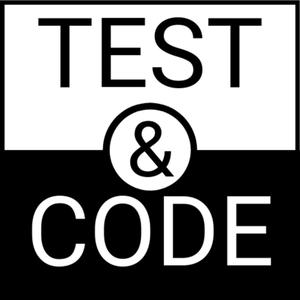 Test and Code
Test and Code
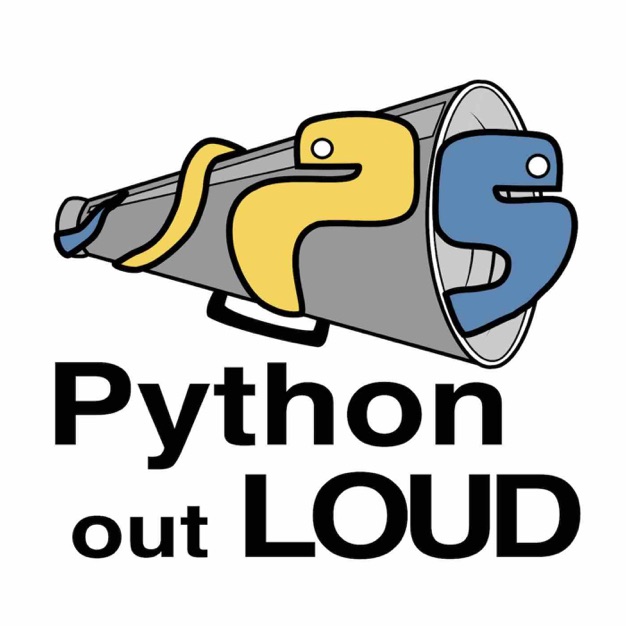 Python Out Loud
Python Out Loud
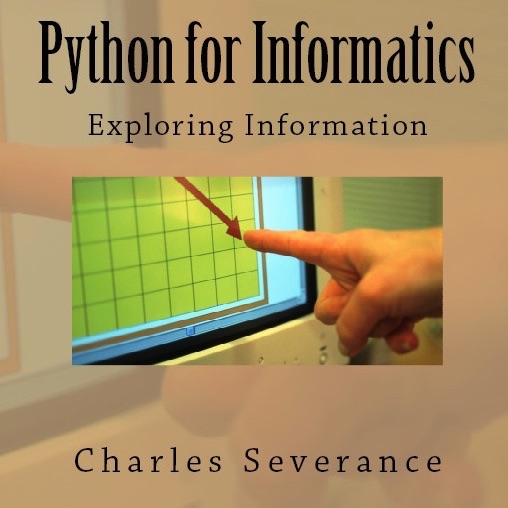 Python for Informatics's official Podcast.
Python for Informatics's official Podcast.
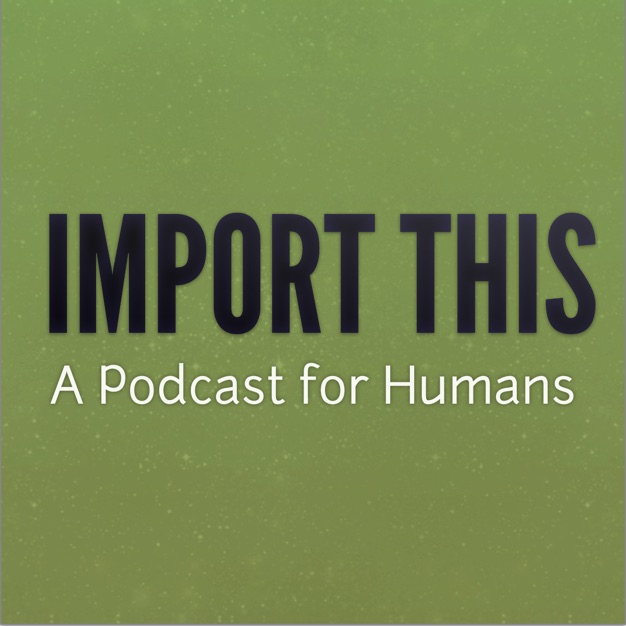 Import This
Import This
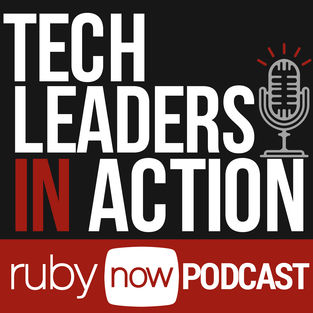 Tech Leaders in Action - Rails, Python, Java, Scala, Javascript, Nodejs ...
Tech Leaders in Action - Rails, Python, Java, Scala, Javascript, Nodejs ...
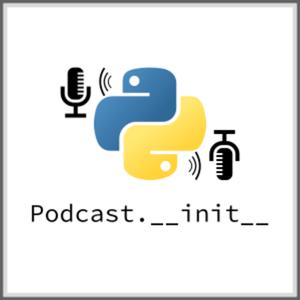 The Python Podcast.__init__
The Python Podcast.__init__